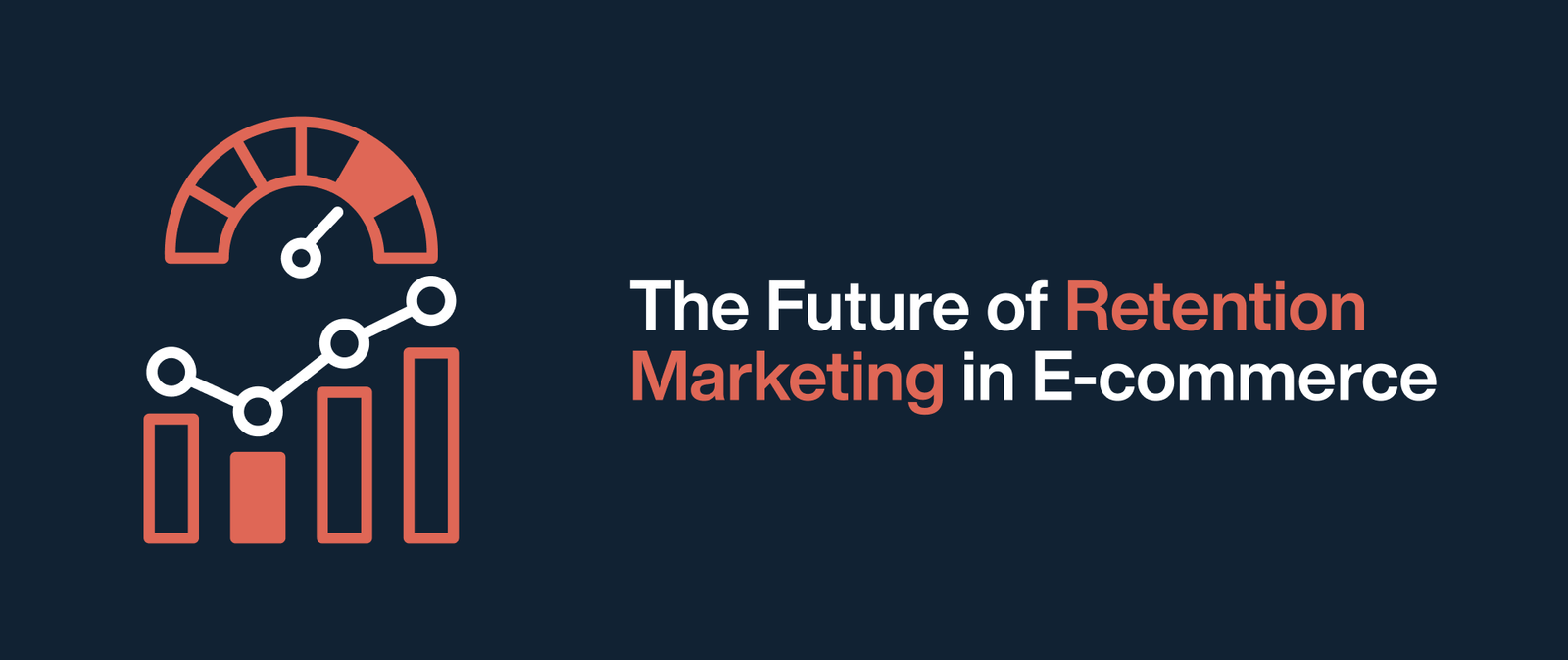The Future of Retention Marketing in E-commerce

Introduction
Customer expectations are evolving faster than ever. At the same time, the AI revolution is reshaping how brands interact with their customers, making personalization and real-time engagement the new standard. In this rapidly changing environment, retention marketing is no longer optional. It is the foundation of sustainable growth for e-commerce brands that want to thrive despite rising acquisition costs and market competition.
In this blog, we will explore how the future of retention marketing is unfolding, the role of AI and automation, and practical strategies to keep your customers loyal while maximizing lifetime value.
The Shifting E-commerce Landscape
E-commerce has always been fast-paced, but the shift in the last few years has been dramatic. Three key trends are driving the urgency for strong retention marketing strategies:
- Customer Acquisition Costs Are Soaring
Paid media is more expensive than ever, and competition for the same audience segments is intensifying. Brands relying only on acquisition are seeing profit margins shrink. - Customers Have Higher Expectations
Personalized, seamless, and on-demand experiences are becoming the baseline. Shoppers expect brands to remember their preferences, anticipate their needs, and engage them with relevance. - AI Is Accelerating Change
With advances in predictive analytics, customer insights, and real-time communication, artificial intelligence is redefining what effective retention marketing looks like.
The Future of Retention Marketing
1. Hyper-Personalization at Scale
AI and machine learning enable e-commerce brands to deliver experiences that feel tailor-made for each customer. This means more than just including a first name in an email. It involves dynamic product recommendations, tailored email and SMS marketing campaigns, and individualized customer journeys based on behavior and purchase history.
2. Omnichannel Engagement
Retention is no longer confined to email. The future is about meeting customers wherever they are, across channels like SMS, push notifications, WhatsApp, and even social platforms. Unified communication creates consistency and ensures no customer is left behind.
3. Predictive Retention Strategies
AI allows brands to forecast when customers are likely to churn and what type of intervention can prevent it. Proactive engagement, such as exclusive offers, re-engagement campaigns, or personalized check-ins, will be key in protecting customer lifetime value.
4. Subscription and Loyalty Models
With acquisition becoming costlier, subscription and loyalty programs are emerging as powerful retention drivers. They create predictability in revenue and strengthen emotional connections with customers.
5. Ethical and Transparent Marketing
As consumers grow more privacy-conscious, trust will become the foundation of retention. Brands that use customer data responsibly and communicate transparently will win long-term loyalty.
Practical Steps for Brands Today
- Audit Your Retention Channels: Evaluate the performance of email and SMS marketing campaigns, loyalty programs, and customer experience touchpoints.
- Leverage AI Tools: Use predictive analytics for smarter segmentation and personalization.
- Test Omnichannel Strategies: Combine email, SMS, and other channels for stronger engagement.
- Prioritize Customer Experience: Beyond campaigns, ensure your website, post-purchase communication, and support reflect your brand promise.
- Measure Beyond Revenue: Track metrics like repeat purchase rate, churn rate, and customer satisfaction to gauge retention success.
Case Studies
We have helped multiple e-commerce brands implement advanced retention strategies that increased their customer lifetime value by 25-45%. Explore our case studies to see how brands transformed their retention approach and unlocked growth potential.
Conclusion
The future of retention marketing is here, and it is being shaped by evolving customer expectations and rapid AI advancements. Brands that adapt by embracing hyper-personalization, omnichannel engagement, and predictive retention will stay ahead of the competition. The key is simple: prioritize retention now, because the brands that build strong customer relationships today will be the leaders of tomorrow.